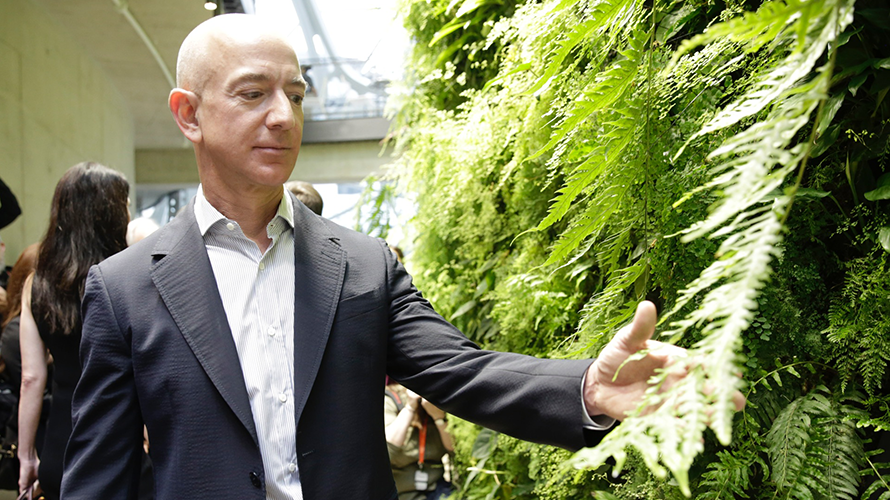Net Zero commitments are the new fad this year for companies. According to the Science Based Targets initiative (SBTi), more than 1,500 companies have committed to net-zero emissions.
This initiative is a certification for net-zero pledges. which considers corporate commitments “science-based” if they set goals in line with a 1.5°C future. Committed companies have 24 months to have their targets approved and published by the SBTi.
The catch is that these commitments don’t necessarily mean that companies are reducing their footprint. Companies could just purchase carbon offsets to meet their goals.
Amazon Is Putting Its Money Where Its Mouth Is
A couple weeks back, Amazon announced their first 5 investments from its Climate Pledge Fund. Not only is Amazon investing in these companies, but using their products too. The companies include:
- CarbonCure Technologies recycles waste carbon dioxide to make stronger and greener concrete. Amazon is using CarbonCure technology for construction of its new buildings.
- Pachama uses AI and remote sensing to verify and monitor carbon capture by forests to help finance conservation and reforestation. Amazon is using Pachama to monitor and assess its carbon offsets.
- Rivian manufactures electric vehicles. Amazon is purchasing 100,000 EVs from Rivian.
- Redwood Materials is an advanced technology and process development for materials recycling, re-manufacturing, and reuse. Redwood Materials will help recycle electric vehicle batteries and reuse the components.
- Turntide Technologies is developing an efficient and intelligent electric motor system. Amazon is testing Turntide’s energy efficient motors in some of its buildings.
Why does this matter?
Amazon is making sure that everyone knows the steps they are taking to implement their emissions goals. Amazon is already a big name and is taking advantage of that and setting the trend of transparency with their actions.
By implementing solutions, rather than just purchasing offsets, Amazon is demonstrating that larger organizations have a role to play for going net-zero. Carbon offsets are also a great way to meet goals, but offsets should really only be utilized by smaller companies and individuals. For a large company, purchasing carbon offsets is nothing.
What’s next?
Reducing carbon emissions and carbon capture will continue to accelerate. The demand is starting to shift, followed by the supporting policy. The supply side is ready for growth – from existing solutions to new innovations.
About The Author

Daniel currently works at Lawrence Livermore National Laboratory. His original assignment was to maintain and update facility safety documentation for all facilities on-site, and perform risk analysis. Over time, his role has expanded to leading continuous improvement efforts through product management.
Concurrently, Daniel volunteers with Techstars, helping organize startup weekends, and with the American Institute of Chemical Engineers, organizing events on the local and national levels of the organization. He also volunteers with One World, and previously with Powerhouse Ventures, to source and screen startups for potential investment.
Daniel holds a BS in Chemical Engineering from UC Davis, and recently completed coursework in energy innovation from Stanford. His passion is at the intersection of sustainability, innovation, and business.

